The Spotify-Rogan controversy is moving swiftly. Over the past few days there have been countless articles written about employee disapproval, the artists leaving, Rogan's use of the N-word and the 70 episodes of The Joe Rogan Experience that suddenly disappeared from the Spotify back catalogue. If you haven't kept up you may want to first read my previous post: CEO-splaining the Rogan deal to Spotify employees.
As a communication theorist and digital ethicist my interest in this affair lies in how communication is being managed both internally and externally at Spotify and what types of decisions are being made to minimize harm and negative impact. Examples of these would be organisational trauma, verbal abuse, contagion of aggression and systemic neglect and marginalization.
In my previous post I broke down and commented on the leaked speech CEO Daniel Ek gave at a town hall on Wednesday last week. Since then there have been videos released of Joe Rogan repeatedly saying the N-word in various episodes, an apology and podcast episodes taken down.
To address employee concern this time around Daniel Ek on Sunday sent a memo to Spotify staff. Which also leaked. And also made me groan with frustration. So here we go again.
You may want to read the full text of the memo. Below I quote significant passages and explain how they can mislead or misdirect.
"I think it's important you're aware that we've had conversations with Joe and his team about some of the content in his show, including his history of using some racially insensitive language. Following these discussions and his own reflections, he chose to remove a number of episodes from Spotify. He also issued his own apology over the weekend."
The racially insensitive language being referred to here is specifically Rogan's use of the N-word. A compilation of Rogan's use of the word was published last week and that is Rogan's second apology in the past week addressed.
You can find and see these videos and more in this collection of clips.
Importantly, Daniel Ek here is saying that Rogan himself decided to remove a number of episodes (that number was 70+). This begs the question: was Spotify not aware of the content of these episodes?
Only one of these can be true and it's not obvious if one of them is better than the other:
- Spotify never reviewed all the episodes before signing a 100 million dollar deal with Rogan, or
- Spotify reviewed the episodes before signing the deal but found no problem with publishing the content.
Make certain you especially take note of this part as well:
we've had conversations with Joe and his team about some of the content in his show
Time and time again Daniel Ek is pushing the idea that Spotify is not Rogan's publisher, despite the exclusive deal. Here he is saying that Spotify and Rogan are talking about the content on his show. Why do they keep doing this if they are not his publisher?
"While I strongly condemn what Joe has said and I agree with his decision to remove past episodes from our platform, I realize some will want more. And I want to make one point very clear – I do not believe that silencing Joe is the answer. We should have clear lines around content and take action when they are crossed, but canceling voices is a slippery slope."
Daniel Ek here uses two words borrowed from a disingenuous online debate: silencing and canceling. Both of those words betray the debate that employees are trying to have. They are straw men tactics.
Spotify employees are not asking their CEO to silence or cancel Joe Rogan. They are asking their CEO to not endorse, amplify and multiply Joe Rogan.
The difference is monumental.
The skilled, educated workforce at Spotify are not pursuing the denial of Joe Rogan's right to speak as he pleases. Likely they understand the concept of free speech at an above average level. But Spotify are actively pursuing the action of amplifying that voice. Spotify have decided that this particular voice out of millions of voices is the one that deserves to be heard by more people, in more countries, in as many installs of the Spotify app as possible.
So Daniel Ek may write this:
Not only are some of Joe Rogan's comments incredibly hurtful – I want to make clear that they do not represent the values of this company.
But he can not deny that he has made a deal that amplifies those incredibly hurtful comments. How then does it matter if they represent the company's values or not? Rogan's values and hurtful comments are getting the cash.
Dropping a business deal is not censorship, cancelation or silencing. It's about deciding what matters most to you.
On a personal note: I would fundamentally be fine with Joe Rogan using Spotify's platform just like any other podcast, publishing an RSS feed and allowing Spotify to pull in that content (algorithms aside). That is not what is happening here, and online discourse often shows a deep misunderstanding of the Spotify-Rogan relationship. JRE can exist on Spotify without an exclusive deal.
"In last week's Town Hall, I outlined to you that we are not the publisher of JRE. But perception due to our exclusive license implies otherwise. So I've been wrestling with how this perception squares with our values."
Remember when I wrote this in my previous post:
In fairness, there is something truly incredibly complicated: insisting that you are only a platform when you very clearly also are a publisher. But that is mostly complicated because it's not true and involves bending and twisting language into incoherent shapes.
The above statement is an example of this. We also may be seeing a clue as to why it was important for Ek to emphasise how it was Joe Rogan himself who recently decided to take down the 70+ episodes, not Spotify.
"So I am committing to an incremental investment of $100 million for the licensing, development, and marketing of music (artists and songwriters) and audio content from historically marginalized groups. This will dramatically increase our efforts in these areas."
I wrote this on Twitter as a response to this:
Daniel Ek doesn't appear to have a clue as to how brutally tone-deaf ignorant it is to communicate the same dollar figure for many marginalized creators as the one sum they just paid one profusely privileged man...
The idea communicated is that the exact amount bandied about in the media as the dollar figure for an exclusive deal with Joe Rogan ($100 million), is the same dollar amount to be shared around to improve diversity and inclusivity in the whole podcasting industry.
For further clarity I'm sharing Megan's take on this as well:
$ 100 million for creatorS?
Their solution is to pay creatorS aka multiple people from “historically marginalized groups” the same amount they pay ONE already wealthy able bodied cis-hetero white male…🤦♀️
But still a benevolent act one might argue (white saviour discourse aside)? Well, it is not only dampened by the clumsily chosen dollar amount. The very act of promoting Joe Rogan actually works against surfacing and bringing attention to marginalized voices. Investing heavily in a famous privileged voice and then trying to balance that by investing more broadly in undefined marginalized voices is not really a balancing act that signals a commitment to equity and diversity.
And it doesn't have to be. Spotify doesn't have to be committing to values of inclusivity and compassion. I'm just calling the cards as I see them and asking for more transparency and honesty, like we get next:
"For me, I come back to centering on our mission of unlocking the potential of human creativity and enabling more than a billion people to enjoy the work of what we think will be more than 50 million creators. That mission makes these clashes worth the effort."
Here we are seeing more candor. These clashes are worth the effort.
- I interpret clashes as financially supporting hurtful content that according to the CEO is also in direct conflict with the company values.
- I interpret effort as things like harm to wellbeing, internal tension and widespread disapproval.
All worth it if Spotify reaches 50 million creators and 1 billion users.
"One of the things I am thinking about is what additional steps we can take to further balance creator expression with user safety. I've asked our teams to expand the number of outside experts we consult with on these efforts and forward to sharing more details."
Two things to take away from this.
First, it appears to be an admission of not having anticipated real harm and finding themselves short-staffed in managing this harm.
Secondly, upon reading the memo, previous speech and articles online I see signs of many employees actually having anticipated that harm. They just weren't heard. A more pressing dilemma then may not be a shortage of competence, but how existing competence is surfaced and listened to.
Summing up
We are far from seeing the end of this debacle. I am concerned with both the learning moments of this but also with the wellbeing of those mostly affected by the ordeals. Which obviously isn't me. Don't hesitate to reach out to me if you believe there is something I could have worded differently or should be more careful with when bringing up.
And if you think these walkthroughs bring value, don't hesitate to share them with your network. Thank you. 😊



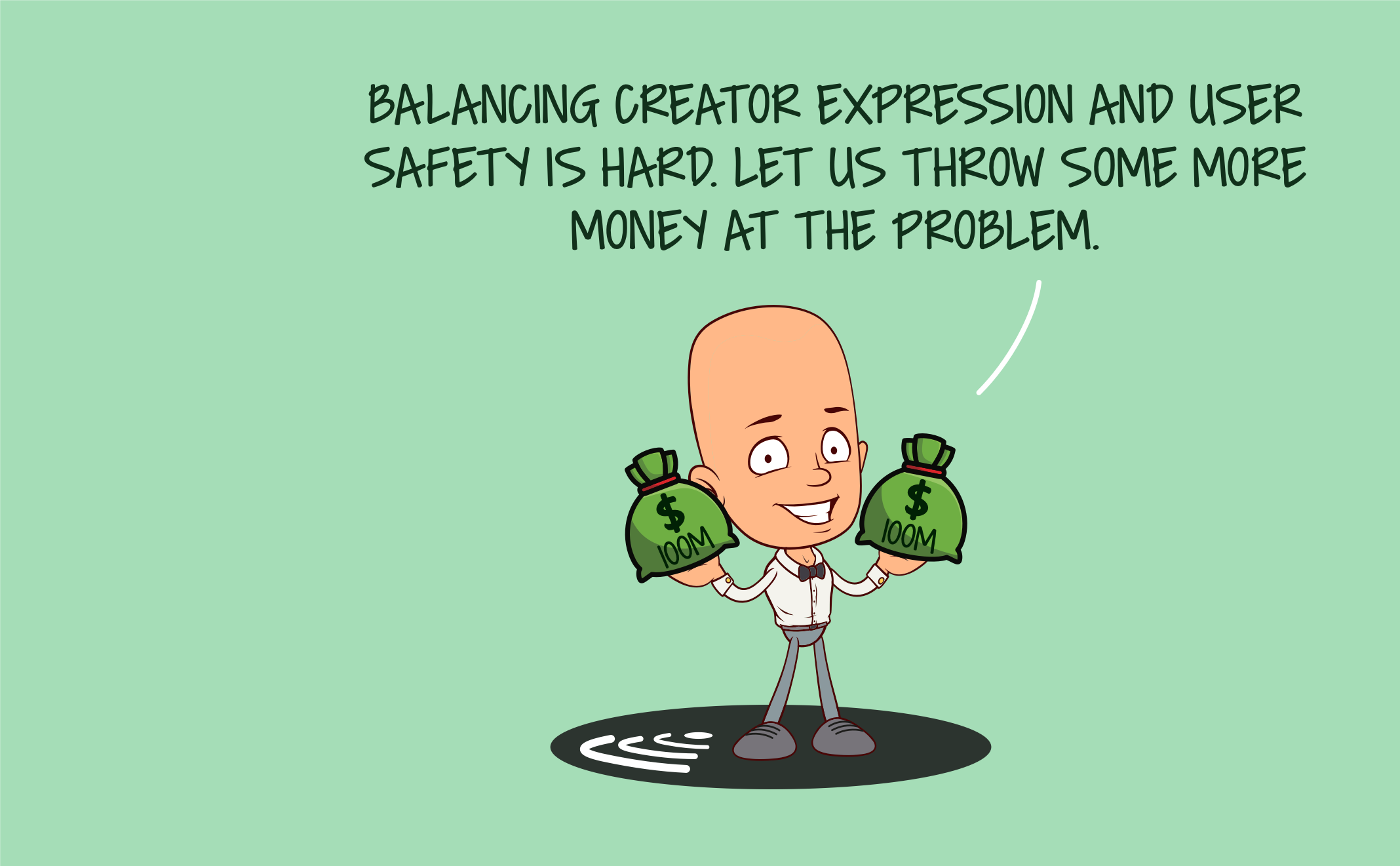
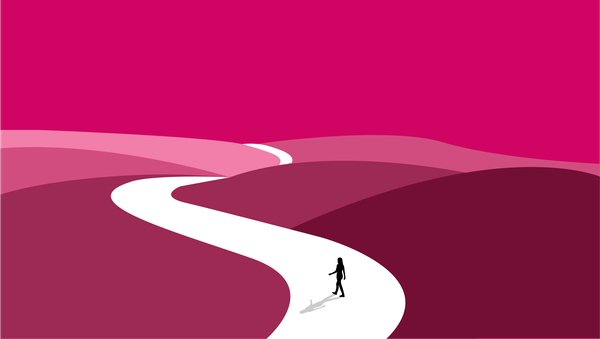
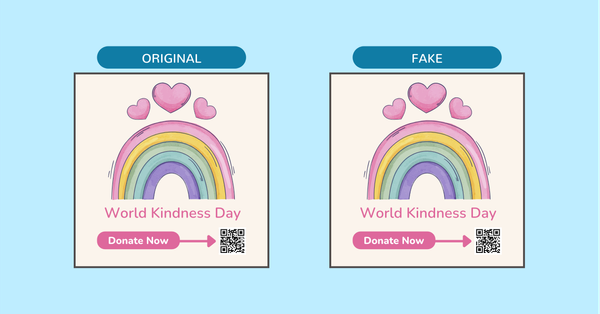
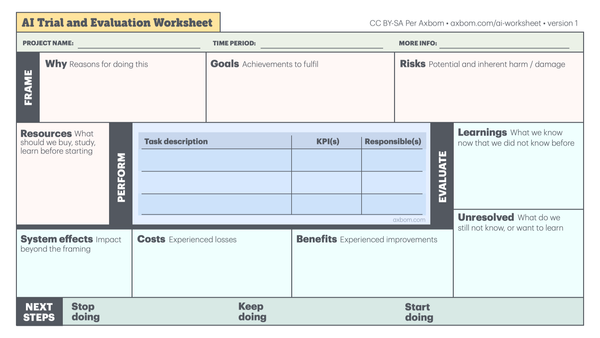
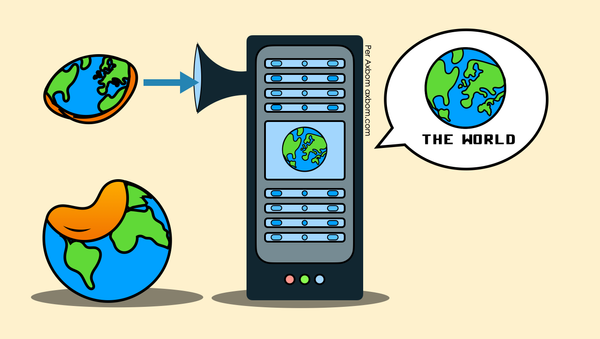
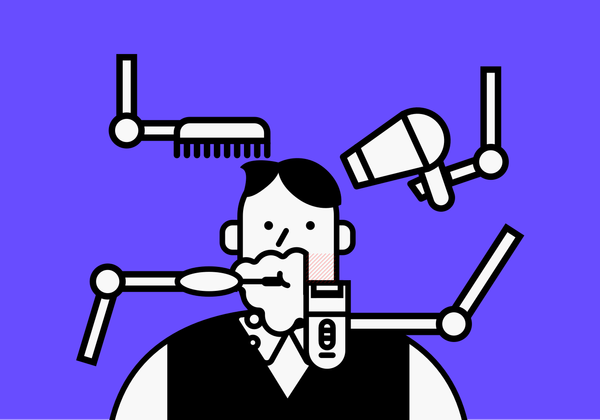
Member discussion